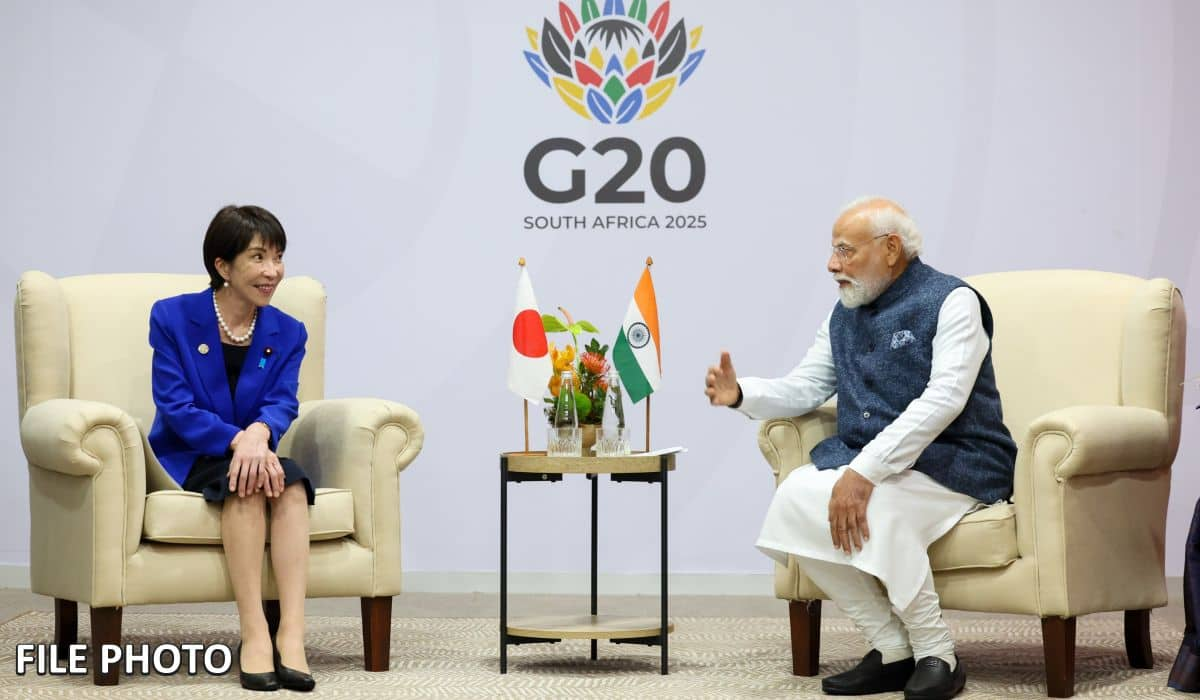On March 16th 2013, Shri Narendra Modi spoke at the India Today Conclave on what his mantra of creating a vibrant Gujarat was.
Before Shri Modi’s speech, a short film showcasing the Gujarat model was shown. The film included Gujarat Government's development initiatives in agriculture, milk production, animal husbandry and highlighted that Gujarat grew at an impressive 9 per cent in the agriculture sector.
The film also elaborated Gujarat's successes in water resource management, electricity management (Gujarat is a power surplus State), public delivery systems, human resource development and education. Furthermore, the film also mentioned Gujarat’s innovations in governance and the continued improvement in various development metrics.
Below are quotes from Shri Modi’s speech,
NAMO Mantra and Gujarat’s Development

“There is no ' NAMO mantra'. But, India has some intrinsic qualities -- evolved thinking and ancient wisdom combined -- which are behind the success of Gujarat.”
“Do we use what we have or do we complain about the things we do not have? Gujarati pride has had a great role in the State's development. Progress and development depend on minds and morale. The task is not difficult.”
“Instead of the Employment Guarantee Scheme, we could have termed it the 'Development Guarantee Scheme'. What if, people were told they had to contribute 100 days to the development of the country instead of telling people they are poor and need jobs to sustain themselves?”
“A group of stone workers, building a temple, were questioned as to what they were doing. While most said they were working to sustain themselves, one man said he was building a temple. It is this matter of mindset that will decide our future.”
“Government, cannot change the nation. It is people who must bring about real change.”
“Many people sacrificed their lives for the freedom struggle. But when Gandhi ji said, every work people do is for the nation, that spirit of community made India a free country. Similarly, Government, cannot change the nation. It is people who must bring about real change.”
“The Sujalam Sufalam canal project included meetings with farmers and they were given charge of various aspects of the project and the work was completed in 2 years.”
“Democracy is a collaboration between the people and the Government. In Gujarat, development is a combined effort.”
“Farmers in Gujarat used to agitate because of lack of electricity. We told farmers to stop relying on electricity. We told them they don't need electricity, they need water. Today, farmers in Gujarat have started thinking of agriculture as irrigation-based.”
We need to work for the people and not for the Government.

“Bureaucratic mindset during British rule was to keep the empire happy. Today we are an independent country and our bureaucrats need to work for the people and not the Government.”
“If Gujarat's bureaucratic shift is valid and worth making, Can the same change not be effected across India? Governments boast of giving people rights. But the Constitution of India has already provided us with many rights. What we need is not acts -- we need action.”
“Once, two friends went hunting. They were not expecting a tiger and didn't have guns. So when the tiger appeared, they showed the tiger their gun licenses. That is pretty much what is happening in the country today.”
The grievance redressal system is the greatest strength of a Democracy
“The grievance redressal system is the greatest strength of a democracy. In Gujarat, the poorest of the poor can go and talk to the bureaucrats. It is people whose empowerment has made sure that entire departments started getting better.”
“Digitisation has made sure that the system of ration cards worked without errors and malpractice.”
“In terms of collection of tax on state borders, we have brought about transparency and that has resulted in a profit of over 2000 crore rupees with the help of technology.”
Ideas need to be institutionalised. Leader-centric and personality-centric ideas may work for sometime but they can't last
“Ideas need to be institutionalised. Leader-centric and personality-centric ideas may work for a few works but they can't last. Fifty per cent of the nation's GDP was under one roof during the Vibrant Gujarat summit this year. The Vibrant Gujarat summit succeeded because it was institutionalized. The ideas at work in Gujarat are not otherworldly, they are common sense.”
“We have two things that can help us dominate over China. One is the demographic dividend -- we are a young nation where 65 percent people are below 35 years of age. Secondly, we have the formidable advantage of being a democracy, the Democracy Dividend. We need to work these two strategies when making our place on the global front.”
“When invited to a tyre company inauguration I told the owner that he would have to grow rubber trees in Gujarat. Gujarat's tribals will grow rubber in the State and nothing will be imported. Integrated development is the key.”
“Once I was sitting with the Prime Minister. I told the PM that if they select 500 towns in India and ensure effective solid waste management, the resulting production of fertilizers will lead to farmers working from outside towns, the towns will get clean. I also suggested the lowering of demand of chemical fertilisers. I made a report on this suggestion and submitted it to the Government. The Central Government has been sitting on the suggestion for three years.”
There are markets all around and all we need is the thinking and initiatives to capture them.

“Looking back at Rail Budgets of the last 10 years, is there any link between development and what Budgets have been promising. Rail connectivity with ports is of vital importance.”
“Are roads only built to carry Government vehicles? Airports also receive private planes as well as Government ones. There are markets all around and all we need is the thinking and initiatives to capture them. Train coach building can be privatised. Delhi metro coaches are manufactured in Gujarat in any case.”
“Gujarat has the world's largest canal network. Canals are topped with solar panels and these make sure that a one kilometre stretch of canals provides one megawatt of electricity. Water evaporation decreases and land, which might otherwise have had to be occupied for the panels, is also saved.”
“I wrote to the Prime Minister suggesting an alliance of nations which get plenty of sunlight. Research should be conducted into harvesting solar power. But, the proposal was never worked upon.”
“I had another meeting with the Prime Minister. We spoke of the fences on the borders with Pakistan and I suggested that solar power panels be built across the border. But this proposal also, was never put into practice.”
It is not enough to build buses. Making sure the conductor behaves well with the people is what constitutes good governance.
After his speech, Shri Modi took questions from the Audience and the moderator.
During the Q&A Session, India Today, Editor-in-Chief, Arun Poorie asked Shri Modi if he was ready to take charge of the country. Shri Modi answered that it is not necessary for him to come to Delhi. All people in Delhi need to do is learn from the example of Gujarat. Furthermore, Shri Modi said, “Gujarat has learnt to turn tragedies into opportunities. Secondly, democracy isn't limited to voting. True-spirit-democracy will have to incorporate people -- youth and women -- into the effort of the nation's development.
On Corruption, Shri Modi said, “To reduce corruption, the state has to be policy-driven. Government officials' greatest grief is transfers. Gujarat has shut down the 'transfer industry'. People moving about means problems moving about. People staying in one place means increase in accountability. Asking for money is not considered wrong in India. We have got money from the people and not from the rich.”
Answering Rahul Kanwal’s question on why the number of poor in Gujarat have not substantially reduced, Shri Modi answered that Gujarat imports poor people from all over the country and his Government is working hard towards upliftment of these people.
Shri Modi was asked about his comment on women being malnourished because of fashion-consciousness. He explained that his full response at the time was that poverty was not the only reason for malnourishment. Even prosperous families suffer because of this.
Additionally, Shri Modi said that in the 2001 census gender and nutrition were the two issues facing Gujarat. He said, “From 2005, Gujarat has initiated holistic measures to change the state of affairs on both counts. The recent CAG report, also vindicated my stand and declared Gujarat the most improved on the malnourishment front.
An audience member asked for guidance from Shri Narendra Modi. In response, Shri Modi said, “We have the good fortune of living for the nation (as opposed to dying for it).”
Shri Modi said that people should be proud that India has a political party that has its own constitution and follows rules, as opposed to being run by a family.
An audience member asked Shri Modi to comment on China's increased military might and how India should react to it. Shri Modi replied that the sun has set on military power and economic power as deciders of nations' fates. He said, “Today, knowledge decides the world's fates. India shines every time the world has been in an age of knowledge.”
Shri Modi was asked about his criticism of Government of India’s policy on Pakistan. He replied, “Good relations with all neighbouring countries are important. Diplomacy and trade relations are what can smooth things out between India and Pakistan as well.”
General VK Malik asked Shri Modi for his point of view on national security. Shri Modi said, “Our defence budget is Two lakh crore rupees. Most of this money goes out of the country for defence purchases. I have a dream that India should supply weapons to the world. Defence manufacturing companies were present at the Vibrant Gujarat summit.”
Shri Modi was also asked why he opposed FDI in multi-brand retail. He replied, “The Government of India forgets that India has a federal structure. UPA has hurt the federal structure of the country greatly. The FDI decision was also imposed on States. I demanded a consultation process as the tradition seems to have disappeared. FDI is not merely about small traders. It is about the dumping of global commodities in India's local markets and the shutting down of local manufacturing sector.”
Shri Modi was asked about his recent comment on 'secularism'. He was asked if minorities do not deserve protection. To this Shri Modi replied, “All Indians deserve protection and that includes everyone.”
Shri Modi was asked if he thought the Gujarat magic could be replicated across India with a coalition Government. Shri Modi replied, “It is unfair to say coalition is a hindrance in the path of development. The problem is lack of initiative and lethargy in matters of policy-making.”
Shri Modi was asked by a guest from overseas on how he would heal the nation. Shri Modi replied, “National sentiment in favour of development and growth will change the nation, and bring it together.”
Shri Modi was also asked what advice he had for the youth. He answered, “It is not right to say that there are no good people in politics. We need to find and encourage people who have intelligent ideas for the development of the country. During the last Panchayat elections in his State, rural candidates were better educated than urban ones.”














